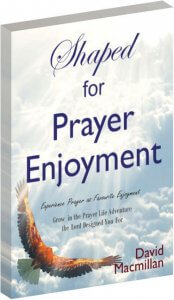I’m sure we would find facing a crisis easier if we had a 100% guarantee that, when we prayed, God’s help  would come immediately. But I doubt that any of us would want to depend on a God who disabled his perfect wisdom, and gave us full control rights over his power for our every need? He is not only perfectly able to give answers, but knows the absolute best time to do it. And it’s not always immediate. Delayed answers are not a recent phenomenon; they have a history as long as prayer, and feature in the journey of even the ‘prayer giants’. Knowing this doesn’t make unanswered prayer easier, but there is a grace for dealing with the disappointment?
would come immediately. But I doubt that any of us would want to depend on a God who disabled his perfect wisdom, and gave us full control rights over his power for our every need? He is not only perfectly able to give answers, but knows the absolute best time to do it. And it’s not always immediate. Delayed answers are not a recent phenomenon; they have a history as long as prayer, and feature in the journey of even the ‘prayer giants’. Knowing this doesn’t make unanswered prayer easier, but there is a grace for dealing with the disappointment?
When there is no sign of an answer the disappointment can trigger a range of emotions: from quiet confusion to loud anger, from numbness to the frenzy of producing an answer of our own. Muting our feelings can be as harmful as venting them carelessly. So how do we deal with the let-down of no answer?
In Christ – in the safety of his love – we have the freedom of honesty, and the grace to use it in a way that honours him. Using that honesty to accuse and blame him is to step away from grace, and exchange freedom for servitude to a spirit that works against the honour of Christ. When an answer is withheld or delayed, it’s good to review both our asking point and our motive. But looking at the WHY of unanswered prayer is not the focus of this post. How can we deal with the reality of the disappointment honestly, yet in a way that honours the One in whose name we do our asking?
Learning to complain to the Lord, without violating trust in him, can be deeply therapeutic for the pray-er. How is this honest lament different from harmful grumbling? The grumbler blames God for the disappointment, whereas the honest lament unpacks the feelings of grief, anger, frustration, fear, confusion, despair, rejection, anxiety and hope….. without accusing the Lord.
I must add this: lament is not necessarily an expression of things as they really are, but as they appear to be. An example: Ethan’s song, Psalm 89. He complains about the Lord breaking his covenant promises 38-49. He isn’t expressing what he knows to be true, but is pouring out his feeling of how things appear to him. Is he seriously accusing God of violating his own nature? No, and the way Ethan guarded his heart from crossing that line is by making a huge part of the song about his TRUST in the Lord 1-18.
For lament to be both honest and honouring (to Christ), it’s important that it is kept within the boundary of TRUST. See how David does this in Psalm 13. We can all identify with his repeated lament: “How long, Lord?” But notice how he moves beyond the lament to TRUST: “But I trust in your unfailing love…” 5-6
The expression of TRUST is crucial. Through it the pray-er admits that – while the pain of disappointment is real and the reason for a delayed answer is not yet clear – he knows the Lord’s nature: he is incapable of failure or wrong, and will always do what is best for his beloved. Voicing that trust is not a feeling; it’s an expression of belief in God’s revelation of who he is. Voiced trust keeps the complaint within the safe boundary, so that our fragile and, at times volatile emotions can express with honesty, but never at the expense of the Lord’s honour.
Here are some steps in dealing with the disappointment of unanswered prayer:
- Write down your asking point (the unanswered one)
- Lament: How long have you waited for an answer? What was your expectation when you began asking? How do you feel about the asking point/circumstance of need now? What feelings has the answer delay triggered? Be honest, write your lament, then speak or sing it to the Lord.
- Expression of TRUST in the Lord. Draw from what you know of his nature; use Scripture, song lyrics and your past experience of his kindness to express (write then voice) your agreement with him about himself. Then check that your lament was not only honest, but honoured the Lord by staying within the boundary of TRUST.




